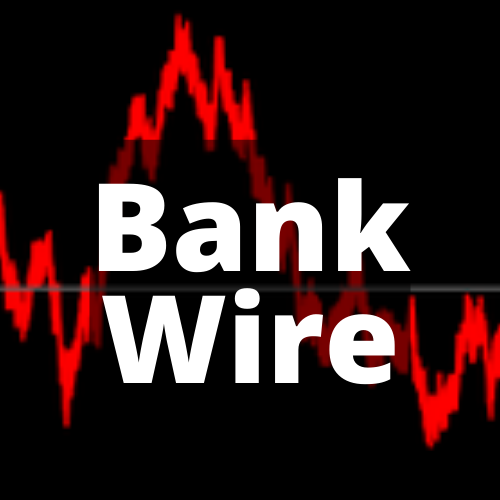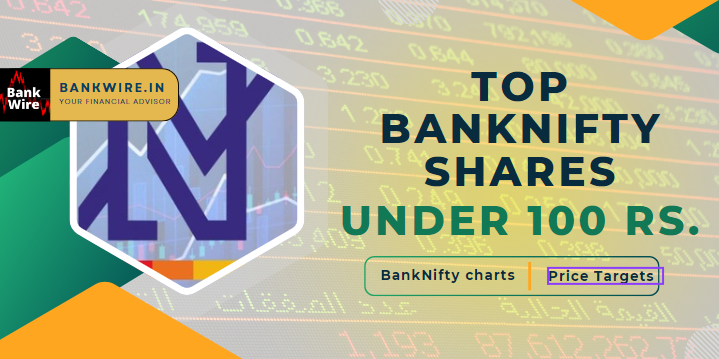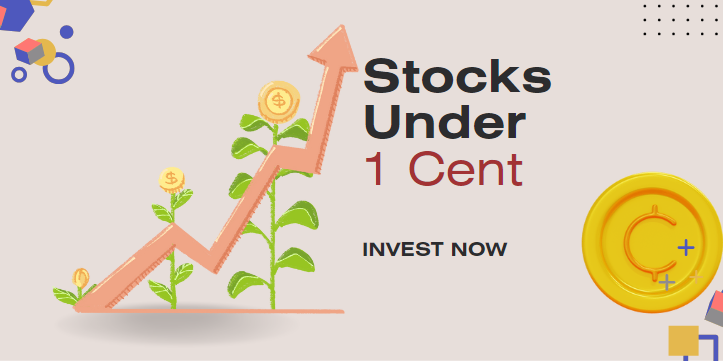
Stock Market FAQ : Everything Answered
Clear All Your Doubts about Stock Market, Read FAQ on Stock Market
Stock Market FAQ: Before investing in stock market and sometimes even after having a long journey in stock market, we have many questions which are important but we do not pay much attention to them, In this article we have complied question which will certainly improve your stock market vocabulary.
Open Free UpStox Demat account/ Trading Account
Open Free Sharekhan Demat Account / Trading Account
Frequently Asked Questions Stock Market on Initial Public Offer (IPO)
What is the IPO means?
Ans: An Initial Public Offer (IPO) is the selling of securities to the public in the primary market. It is the largest source of funds with long or indefinite maturity for the company. An IPO is an important step in the growth of a business. It provides a company access to funds through the public capital market.
Is IPO a good investment?
Ans: You shouldn’t invest in an IPO just because the company is garnering positive attention. Extreme valuations may imply that the risk and reward of the investment is not favorable at the current price levels. Investors should keep in mind a company issuing an IPO lacks a proven track record of operating publicly.
Also Read | Bank’s NPA recovery process and borrower’s rights! | Current Account and its importance
Can I get profit in IPO?
Ans: If you participate and buy stocks in an IPO, you become a shareholder of the company. As a shareholder, you can enjoy profits from sale of your shares on the stock exchange, or you can receive dividends offered by the company on the shares you hold.
Is IPO high risk?
Ans: If you’re interested in the stock of a newly public company, you should have a relatively high risk tolerance, because shares can be especially volatile in the first few months after an IPO. You might consider waiting until you can evaluate at least two quarters of earnings.
Is IPO good for beginners?
Ans: Purchasing shares in an IPO is difficult as the first offering is usually reserved for large investors, such as hedge funds and banks. Common investors can purchase shares of a newly IPO-ed company fairly quickly after the IPO.
Also Read | Bank Deposit Schemes, Compare Fixed Deposit, Recurring Deposit with PPF, Sukanya Samriddhi Yojana
Which is better IPO or share?
Ans: The price of shares in an IPO may be fixed or variable within a given range. However, prices of regular stocks or FPOs are market and demand-driven.
Can I sell IPO immediately?
Ans: IPO shares come in within a mandatory lock-in period for six months from the day of allotment. The lock-in period is set to avoid dumping of shares which can cause the market value of the share to fall and create a situation of stock instability.
How is IPO price calculated?
Ans: To determine the value of the company, its estimated equity value is divided by its recent net income to find out the price-to-earnings multiple. This method is used when the company has positive cash flows and when the companies in the same sector have similar growth and capital structure.
Read About | Government Business loan Schemes |How to manage EMIs to pay back less
What are the three types of IPO?
Ans: There are three IPO categories: retail investors, non-institutional investors, and qualified institutional buyers. The price band is the price range determined for book building issues. Not all retail brokers offer IPOs to their clients, and so IPOs are usually allotted to qualified or institutional investors first.
Is IPO better than mutual funds?
Ans: Investing in IPOs involves a lot of risk but also has the potential to give very high returns among other assets in the portfolio. You can invest in mutual fund either through fund website or through Asset Management Companies (AMCs). To start investing in an IPO, you need to open demat cum trading account.
Stock Market FAQ on Follow on Public Offer (FPO)
What does FPO mean?
Ans: FPO (Follow on Public Offer) is a process by which a company, which is already listed on an exchange, issues new shares to the investors or the existing shareholders, usually the promoters. FPO is used by companies to diversify their equity base.
Is buying FPO good?
Ans: Investors consider FPO to be a better investment option. It is because your risk levels need to be very high to invest in an IPO, as you will not have much valuable insight into the company.
Also Read | Types of Insurance, Why to choose banks for insurance | Personal Loans, advantage and disadvantage
What is the benefit of FPO?
Ans: Follow-on public offering needs investors to do thorough research on the company and its track record, just like any other investment. Investing in FPO suits investors with a good knowledge of risk and makes it much easier to conduct research. Moreover, this enables investors to purchase company shares at a discount.
What happens to share price after FPO?
Ans: The pricing of a follow-on offering is market-driven. Since the stock is already publicly-traded, investors have a chance to value the company before buying. The price of follow-on shares is usually at a discount to the current, closing market price.
Why do companies issue FPO?
Ans: The reason behind the company performing an FPO is to expand its equity base. The company uses FPO only after the company has started the process of an IPO to make their shares available to the public and to raise capital for their business.
Open Free UpStox Demat account/ Trading Account
Open Free Sharekhan Demat Account / Trading Account
What happens if FPO is fully subscribed?
Ans: A fully subscribed offering is the goal of an initial offering. A fully subscribed offering prevents a company from having shares left over that they cannot sell after they go public, or shares that must undergo a price reduction to be purchased by investors.
Frequently Asked Questions Stock Market on Demat Account
What do you mean by Demat?
Ans: Dematerialization (DEMAT) is the move from physical certificates to electronic bookkeeping. DEMAT accounts are required by some trading institutions due to the fact they are the most accurate form of record keeping. Dematerialization was designed to offer more security, as well as increased speed, to financial trades.
Is demat account tax free?
Ans: If you’re investing in the stock market, one important aspect to account for is the income tax on a demat account. As per the Income Tax Act, 1961, the gains that you derive from selling the shares that you hold in your demat account are liable to be taxed.
Explained | 15 Tips and Tricks to save income Tax | What is Pradhan Mantri Awas Yojana PMAY
Is there any risk in demat account?
Ans: There is a negligible chance of theft or loss of assets when held in Demat form. Before dematerialisation, settlement of trade used to take 14 days due to the physical movement of paper shares from the seller to the RTA to the buyer.
Should I file ITR if I have demat account?
Ans: According to the regulations of the Income Tax Act of 1961, you have to declare any earnings that take place through your Demat account holdings.
Can I have multiple Demat accounts in India?
Ans: An investor can open multiple Demat Accounts with different brokers with a valid PAN card. Securities and Exchange Board of India (SEBI) does not levy any limitation on opening more than one Demat accounts in India.
What happens if I don’t use my demat account?
Ans: If you still don’t continue to make any debit or credit transactions even after being declared as inactive, only then your account becomes dormant. The time taken for your demat account to move from inactive status to dormant status is usually mentioned in the agreement that you sign with the depository participant.
Read More | Cyber Fraud: Banking frauds, Recover lost money | Top 10 Stocks to invest in 2023
What is the maximum balance in demat account?
Ans: There are no such limits. You can hold any value of securities or shares in your demat account. With regards to Basic Service Demat Account (BSDA), the upper limit is 2 lacs. Although as a retail investor, you should not be worried about limits as such.
Can I invest in shares without demat?
Ans: It is important to know that a Demat Account is only mandatory for investing in stocks and no other security. However, while you do not need the account to buy Mutual Funds, it can help to have one nevertheless.
Stock Market FAQ on exchange-traded fund (ETF)
What Is an ETF Account?
Ans: In most cases, it is not necessary to create a special account to invest in ETFs. One of the primary draws of ETFs is that they can be traded throughout the day and with the flexibility of stocks. For this reason, it is typically possible to invest in ETFs with a basic brokerage account.
Are ETFs a good investment?
Ans: ETFs are considered to be low-risk investments because they are low-cost and hold a basket of stocks or other securities, increasing diversification. For most individual investors, ETFs represent an ideal type of asset with which to build a diversified portfolio.
Open Free UpStox Demat account/ Trading Account
Open Free Sharekhan Demat Account / Trading Account
Is ETF better than mutual fund?
Ans: ETFs and index mutual funds tend to be generally more tax efficient than actively managed funds. And, in general, ETFs tend to be more tax efficient than index mutual funds.
Are ETF risky in India?
Ans: ETFs carry the risk of stock market volatility. As the prices of various underlying stocks fluctuate, ETF portfolios also get affected due to those fluctuations to a certain extent. ETFs may not precisely replicate the index it is tracking, and the differences are called tracking errors.
Can SIP be done in ETF?
Ans: The units of these ETFs can be bought or sold at the stock exchange where it is listed on a real-time basis. Investing in physical gold requires large amounts of money, whereas Gold ETFs allow investments in small denominations through Systematic Investment Plans (SIPs).
Read About | 6 things you Must know before market opens | How do they decide Stocks Upper Circuit limit
Do ETF pay dividends?
Ans: Do ETFs Pay Dividends and Capital Gains? ETFs are required to pay their investors any dividends they receive for shares that are held in the fund. They may pay in cash or additional shares of the ETF. So, ETFs pay dividends, if any of the stocks held in the fund pay dividends.
Which is better ETF or index fund?
Ans: ETFs are more tax-efficient than index funds by nature, thanks to the way they’re structured. When you sell an ETF, you’re typically selling it to another investor who’s buying it, and the cash is coming directly from them. Capital gains taxes on that sale are yours and yours alone to pay.
Stock Market FAQ – For Beginners
- Can I invest 1000 RS in stock market?
Ans: Simple answer is Yes, you can begin trading with any amount that you can spare because when you even invest Rs. 1000 you are better off than the person not investing in equities at all. - When should I buy a stock?
Ans: The period after any correction or crash has historically been a great time for investors to buy at bargain prices. If stock prices are oversold, investors can decide whether they are “on sale” and likely to rise in the future. - What is Nifty and Sensex?
Ans: Nifty and Sensex are benchmark index values for measuring the overall performance of the stock market. Nifty is the Index used by the National Stock exchange, and Sensex is the Index used by the Bombay Stock Exchange. - What are the 4 types of stocks?
Ans: 1. Blue chip stocks. These are organizations with solid foundations and decades or centuries of record.
2. Growth stocks. Growth companies are in great flavor.
3. Speculative stocks. These are companies with no actual fundamental logic.
4. Range bound shares. - How to invest in stock market?
Ans: If you want to buy shares, you must first approach a SEBI-registered member, or broker, of a stock exchange. You need to then register as an investor before you begin investing; to do so, follow these steps: Find a SEBI Registered Member : Click here. Find out which stock exchange they are registered with.
Open Free UpStox Demat account/ Trading Account
Open Free Sharekhan Demat Account / Trading Account
Read Category-wise posts
Banking | Bank Account | Bank Deposit Schemes | Loans | Bank Cards | Credit Cards | Debit Cards | Search IFSC & MCLR Code | Insurance | Bank Jobs and Exams | Stock Market | GST | EMI Calculator




